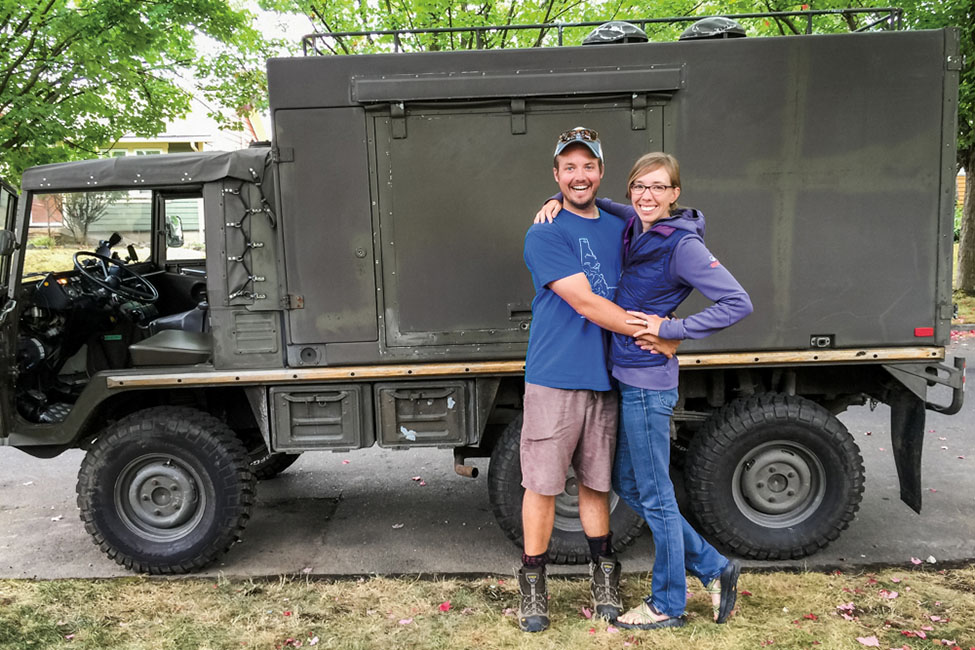
Growing up in an Air Force family, home for Chelsea Roberson Tuttle (’07) meant moving around. After graduating from the University, Tuttle adopted the same method, this time with a home that literally moved around. Since her first camper van, Tuttle and her husband, Christian, have lived in an ambulance, bus and Swiss army vehicle — traveling the country from the comfort of their own home.
“I had always had it in my head that I wanted a house on wheels,” Tuttle says. “When I lived in San Diego, I bought the camper van and lived in it for about a year, and that was kind of the beginning of the mobile living situations. I think my mom was relieved when I sold it because she thought I had gotten it out of my system. But the opposite had actually happened.”
Her next “mobile living situation” was an ambulance she and Christian converted into a camper while living in Colorado. They nicknamed it the “Campbulance” and traveled extensively throughout the country in it.
“We gutted it, saving the things we wanted, to make way for what are essentially the two key items for a camper: a bed and a kitchen solution,” Tuttle says. “With the Campbulance, we had shelves and outdoor storage, so one of them folded down into an outside kitchen quite nicely.” They upgraded to a small school bus, which required more renovations than the ambulance but gave them more living space.
“We were living at a campground in Montana, and most of the guys there were living in tents. We felt like we were in Buckingham Palace. We could stand and walk around, and it had a full kitchen.”
While the bus’ size was a luxury, it also created issues when it came to maneuvering off road, so the couple traded the bus for a Pinzgauer, a six-wheel drive Swiss army vehicle. The Tuttles lived in the vehicle for a year, spending six months of that in Baja, California.
“The military vehicle is definitely a conversation starter. We’ve met so many people because of it, and sometimes it takes 30 minutes to get out of a gas station parking lot because people just want to come over and talk and look at it. We’ve had people ask to take pictures sitting on it.”
Because of the size of their vehicles, the Tuttles seldom travel on the interstate; they can only get up to 55 miles per hour. Exploring the country along back roads opens them up to seeing more sites and making new friendships along the way.
“Traveling has opened doors to relationships with people who we otherwise wouldn’t know,” Tuttle says. “You discover a lot staying off the interstate. You end up talking to people at a gas station and then you get an awesome recommendation for a hot spring nearby or somebody offers to let you park in their driveway for the night. It restores my hope in humanity sometimes.”
Recently, the couple parked their home on wheels, trading it for a more stationary option, living in a house together for the first time.
“It is a huge adjustment, but it’s an easier transition back into house living than it is out of it. The stressful part of traveling nearly full time comes from having no permanent home and having to rely on others for that stability. So it’s nice to have a home base we can travel away from but still come back to.”
—Jennifer Hannigan